

We empower event organizers around the globe, from destination festivals, major sporting and music events to club nights, local fairs, charity fundraisers and private galleries.
Start an event, members’ hub or virtual event for your community and discover how Eventcube can transform your business.
Get Started.jpg)
This guide shows you how to plan events with intent. It focuses on setting direction first, then translating that direction into clear action. You will learn how to define what success looks like, align decisions around it, and avoid common breakdowns that occur when details drive the process rather than purpose.
Strong events take shape through clear decisions made early in the planning process. You influence attendance, cost, and long-term value before timelines and task lists appear. Early clarity helps planning efforts stay focused and aligned.
Defining purpose sets the foundation for every event decision. You shape scope, budget, and experience based on what the event exists to achieve.
Success becomes meaningful when goals connect to measurable outcomes. Attendance alone no longer reflects impact. Metrics such as lead generation, revenue influence, brand perception, and retention provide signals you can track and evaluate.
Eventcube’s white label storefronts let registration, checkout, and event communication stay in one place, without external branding layered on top. Attendees see a consistent experience from the first click through to the event itself.
Clear objectives work best when paired with clear measures of success. The table below shows how common event purposes align with specific objectives and metrics.
Who is coming to the event?
This matters because it guides your stage design, promotional campaign, and activities. Knowing who you invite also helps your marketing team choose the right platforms to reach attendees.
Audience understanding goes beyond age ranges or job titles. Intent shows up in what people want to learn, how they prefer to participate, and how much time they are willing to invest. Data support this pattern. Hands-on or topic-specific formats rank highest with 75% of attendees, which connects clear intent to stronger satisfaction.
The more personalized the event is to your audience's desires, the higher your chances of success.
Think about what you want your event to look like. Keep the event theme and the people attending your event in mind. What would make sense for them?
There are various ways to approach this: Stage design, decorations, and seating plans are common places to start. Take inspiration from the greatest event designers of our time and work within your budget.
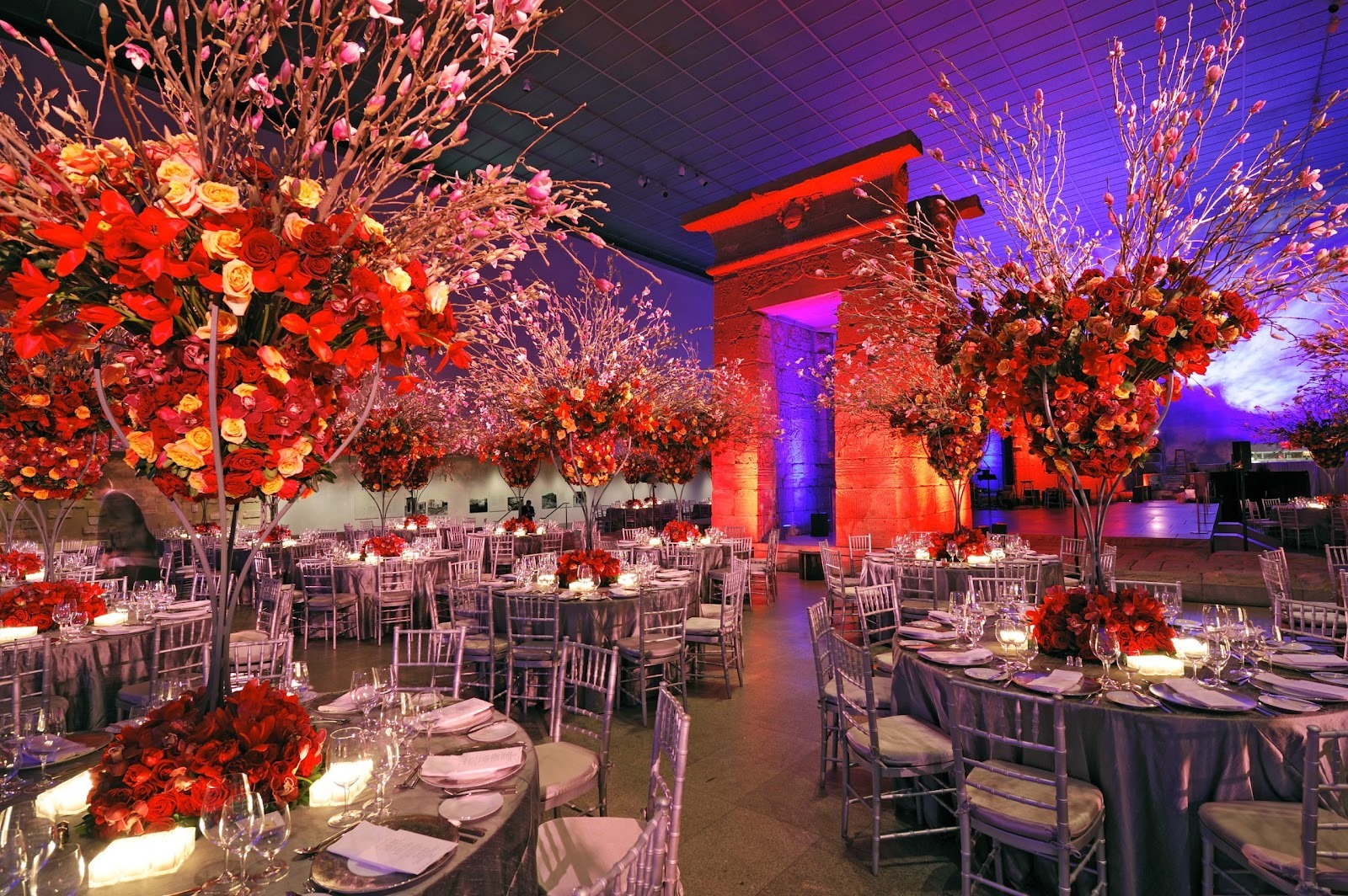
You can also take a simpler, more effective route via a floor plan.
A floor plan helps you visualize your event space and coordinate details with sound technicians, ticketing managers, and production staff. It serves as a vantage point for entrances and exits, a visual focal point, and amenities, ensuring a top-notch experience for attendees.
A software for visualizing your event space in 3D can be incredibly useful.

The best event planners think about how the day will go from beginning to end and plan for each part of it. Especially for large events, a schedule helps ensure that everything goes without a hitch–from setting up, giving presentations, and taking breaks.
A project management software would make an excellent addition to your tech stack. It will be your eyes and ears for all movements. Plus, it helps you stay organized and on top of deadlines.
Team structure influences how smoothly planning moves from idea to delivery. You depend on clear ownership to keep decisions moving and avoid confusion as details increase.
Just like any successful production, your event requires a variety of skilled individuals in key roles:
Now that you have clearly defined roles, teams, and responsibilities, all that's left is to ensure smooth communication.
Vendor communication also benefits from structure. You maintain consistency when approvals and changes follow a clear path.
Budgeting shapes how confidently an event moves from planning to delivery. You influence scope and pacing based on how funds enter and leave the plan over time.
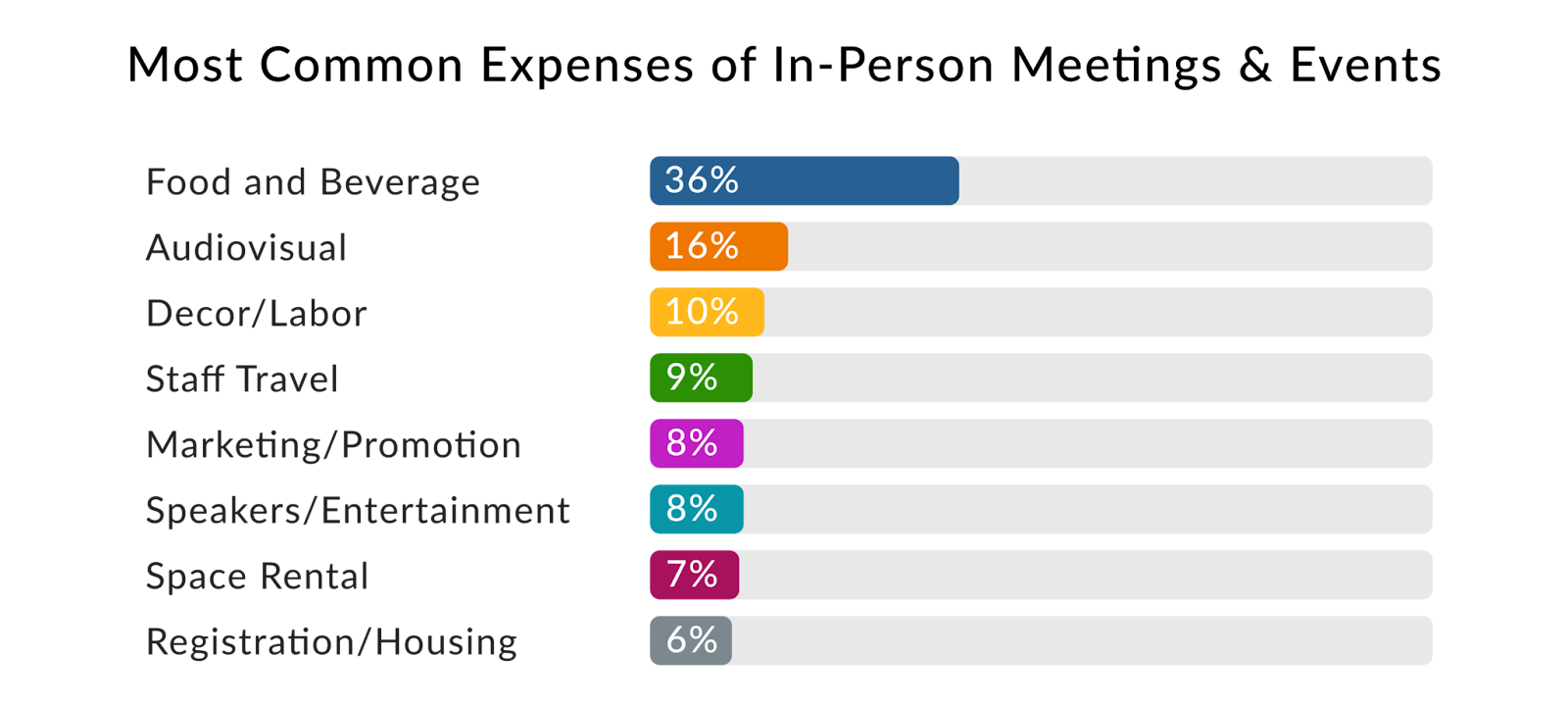
Clear cost estimates support steadier tracking as plans develop. You gain visibility when major areas of spend stay easy to see as decisions lock in. A contingency buffer of around 15% helps absorb pricing shifts and late adjustments without disrupting the plan. This structure keeps financial pressure contained as planning progresses.
Financial planning also supports performance review later. You connect spending to outcomes when costs remain visible throughout the process. That clarity helps you manage risk and assess return once the event concludes.
Tip: One area you must absolutely not be cheap about is audiovisual equipment, as it affects attendees' overall experience.
Sourcing choices shape how an event comes together in practice. You feel their impact in attendance, flow, and overall ease long before the event opens. These decisions set limits that influence event planning across every stage.
Location affects how people arrive and move through the event. Timing influences who shows up and how long they stay engaged. Vendor choices affect consistency as plans shift and details settle. Each of these factors connects back to the experience you deliver.
Several constraints tend to shape planning early:
When sourcing and timing align with real conditions, planning feels steadier.
Measurement brings clarity to how an event actually performed. You gain clarity when attendance, cost, and outcomes connect to what actually happened on the day.
Attendance tells a more accurate story than registration alone. RSVP melt captures the gap between intent and participation. It shows how many registered attendees did not convert into real presence, which affects space usage, staffing, and cost efficiency.
Cost becomes more meaningful when tied to this attendance reality. The true cost per attendee reflects the investment required for each person who showed up, not for each person who signed up.
Cost Per Attendee = Total Event Spend ÷ Actual Attendees
This metric reveals how planning assumptions translate into outcomes.
Feedback and performance data complete the picture. You understand the impact when attendance patterns, cost, and responses align with the purpose defined earlier.
Turning plans into on-site execution brings the event to life. This is the stage where timelines, coordination, and access come together during the event. Clear structure helps everything move smoothly as the experience unfolds.
Accessibility shapes how people move, listen, and participate once the event begins. The layout, content delivery, and food service affect whether attendees stay engaged throughout the day.
Not every attendee experiences an event in the same way. Some rely on clear paths and seating to move through the venue with ease. Others need live interpretation or transcription to follow sessions. Dietary needs also play a role, especially during long schedules where meals and breaks matter more than expected.
Tip: Many accessibility issues become easier to manage when they surface early. Registration is often the simplest place to learn what attendees need, which helps avoid last-minute changes once the event is underway.
Event technology goes unnoticed when it works, but stands out when it fails. It shapes check-in, session tracking, and updates on event day.
Audiovisual setup affects how clearly people can see and hear what is happening. Internet access supports ticket scanning, live updates, and team coordination. These tools work together behind the scenes throughout the day.
Preparation helps reduce uncertainty. And walkthroughs and test sessions create familiarity with equipment and timing.
A few areas tend to matter most on-site:
When technology stays reliable, attention remains on the event itself.
An event ticketing platform serves one clear purpose: To make it easy for people to get tickets to your event.
The best one on the market lets you do exactly that, securely, without extorting your customers' hard-earned cash. Ticket booking fees are easily inflated by many providers with hidden fees that customers aren't prepared to pay at checkout.
As the event promoter, this reflects poorly on your event and can easily be written off by buyers as unethical.
Eventcube is an event ticketing software that's gotten fees figured out through its no-nonsense fee structure. Free tickets are always free. You're only charged as you sell paid tickets. Plus, funds are sent straight to your Stripe account with daily payouts for improved event cash flow.

Eventcube also offers a host of professional features, including discounts, group buys, and a custom domain, giving you complete control over your brand and event ticketing.
It also integrates with a handy ticket scanning mobile app that will help you track attendance and ensure that no tickets are used twice. If given a chance to incorporate event technology into your event, let this be the one.
Social media is one of the most common and cost-effective ways to promote an event. But so is email marketing, where you can build a guest list you can easily retarget in your next events.
But promotion alone does not drive registrations.
What often makes the difference is how marketing connects with pricing and timing. Going back to your event objective and target audience helps here. Once you know who the event is for, it becomes easier to decide which channels make sense.
Pricing influences that decision more than many teams expect. Early bird pricing often encourages people who are already interested to act sooner. It also helps you gauge demand before major costs are locked in. As the event gets closer, pricing and availability signal urgency.
Ask yourself:
Promotional materials work best when they match that rhythm. A short video or teaser helps introduce the event early.
Remember the selfie generator that was released for The Barbie Movie? It was an interactive, shareable, free-for-all filter that puts users in Barbie-like packaging.
The message was clear: anyone is Barbie. It was released the week of the movie premiere and shared across Facebook and Instagram.
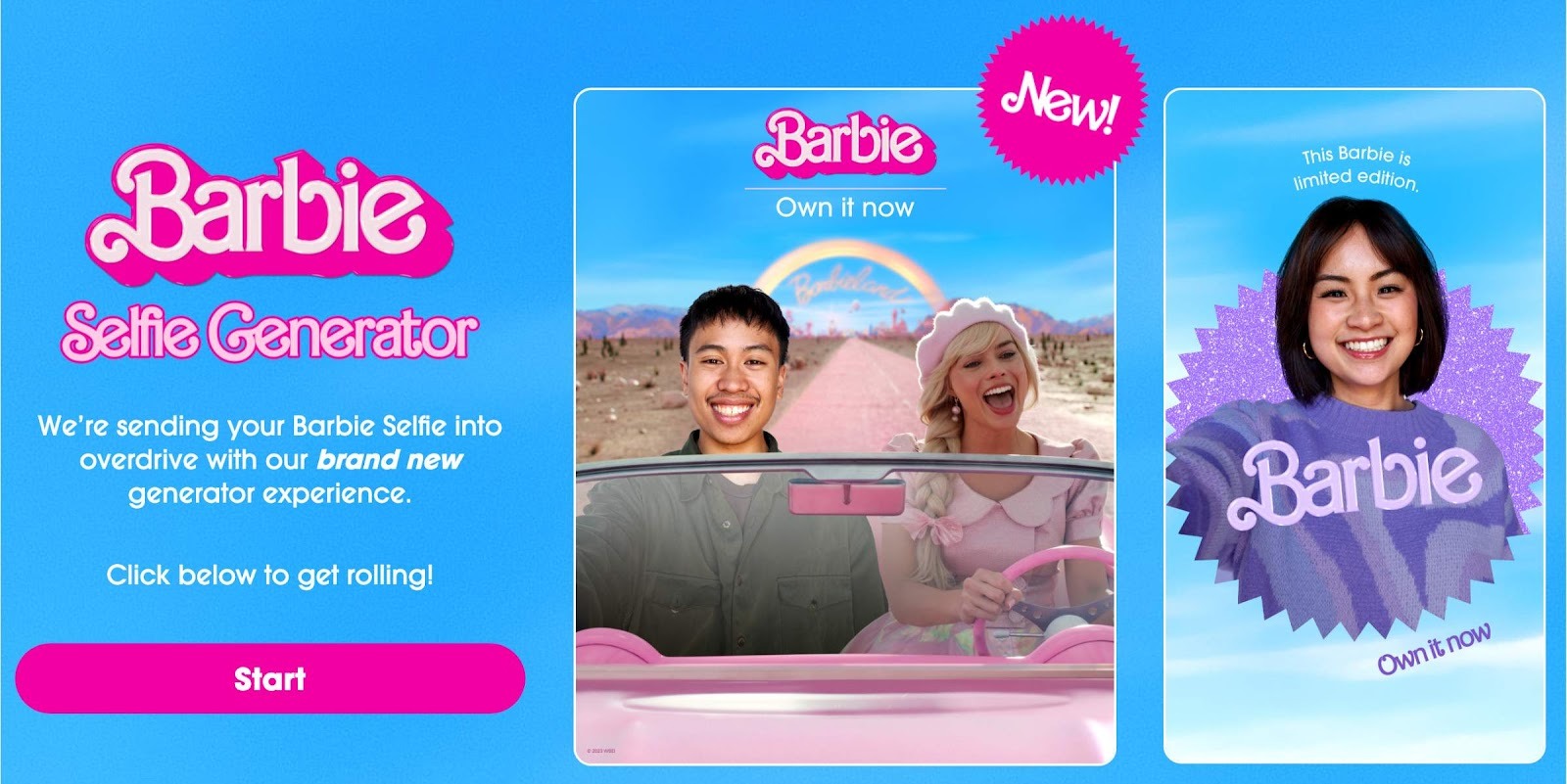
Promotional materials are similar to a campaign spread out in the months or weeks leading up to the event.
The big day has arrived. Everything is in place, and the guests are at your door, so it is the ultimate test of your event planning skills.
For a smooth and seamless event day, ensure everyone from the core team and venue staff knows their assignment by heart. A show flow will help keep everyone in line.
A show flow is a sheet of paper that details the sequence of events, materials needed, and people involved. This instruction mobilizes the right teams and removes any confusion and hiccups that may delay the event.
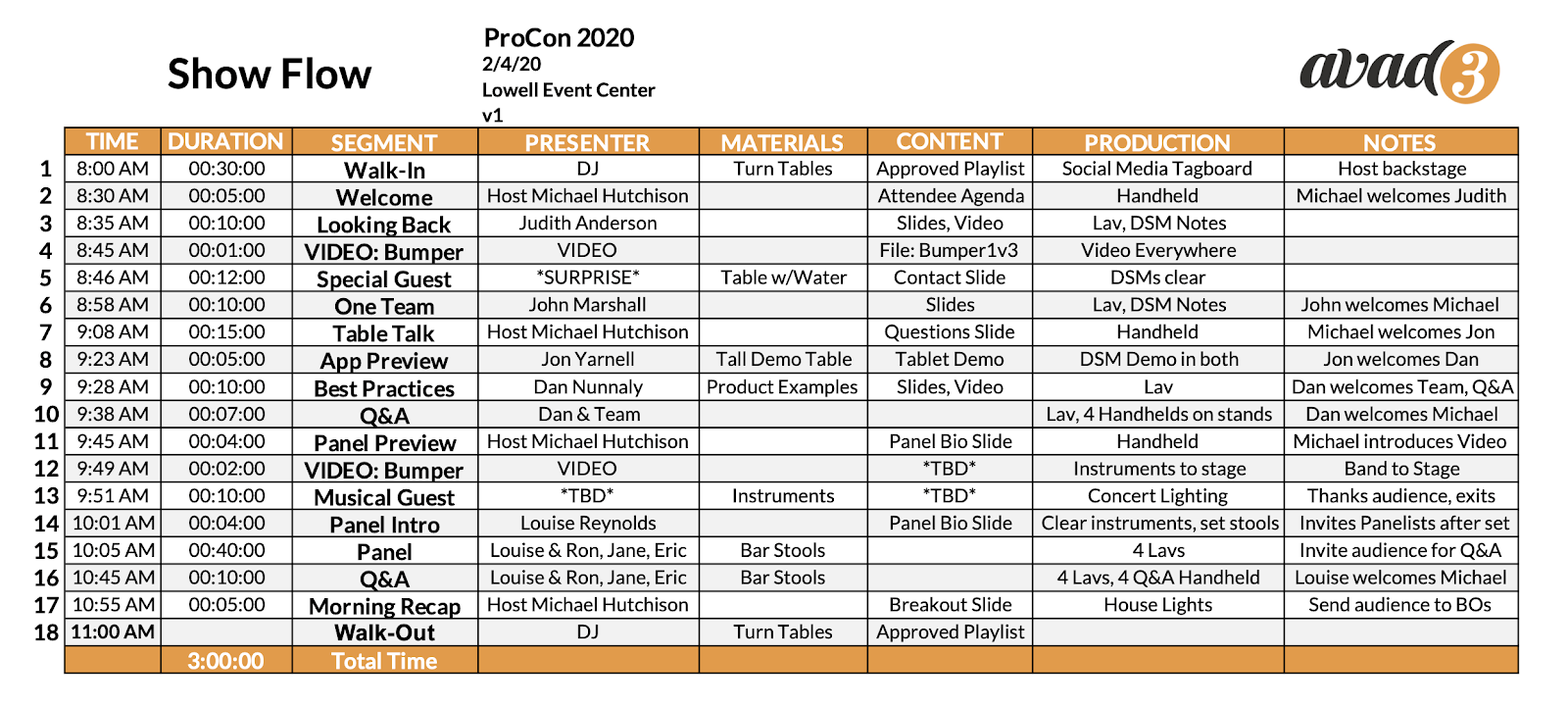
With all the gear set up right and committees in their designated position, the event will not only go off without a hitch but also leave everyone remembering it fondly.
For a flawless event experience, make sure your AV setup is on point—explore our Complete Guide to AV Setup for Events for expert advice.
Once the curtains have closed and the last guest has left the venue, it's time to gather feedback.
This is an important step in seeing how well your event went. As event professionals, feedback helps you find out if your event hit the mark and where you can do better next time.
Hearing about what people thought about your event may also serve as a reward for the team that poured hours into getting it over the line.
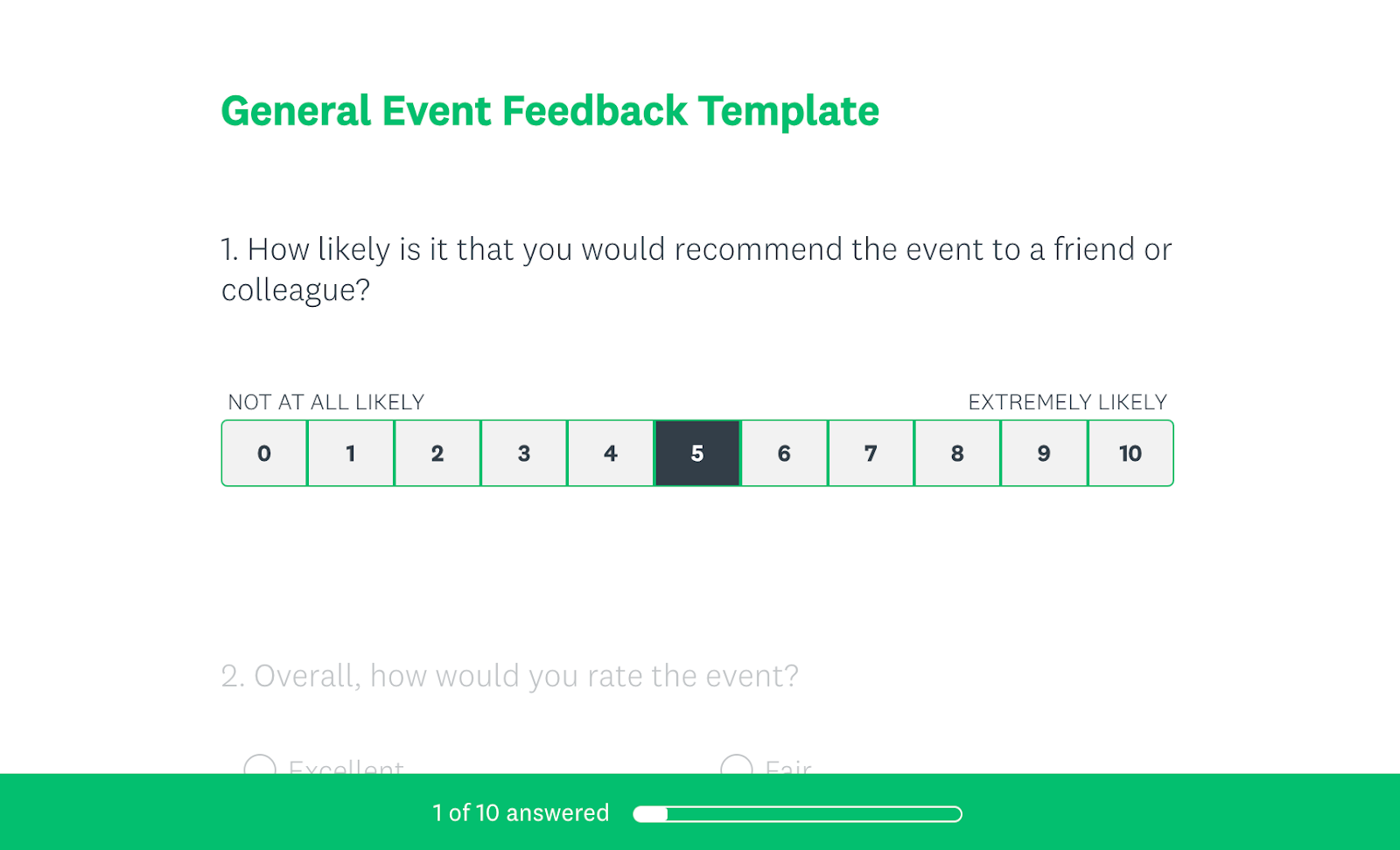
The simplest way to gather feedback is through a post-event survey. Most organizers email a survey link to all customers after the event. Some flash a QR code on the screen and urge attendees to write a review while waiting for the next act. Take whichever method makes the most sense for your event.
Need expert event planners? Explore our roundup of the best event planning companies in the USA to find the right fit for your next big event.
The Event Host’s Playbook covers the things that matter once the event is underway. This is the point where plans turn into real moments, and the pace picks up. What helps most here is having the right references and backups close at hand.
The show flow is what keeps everyone on the same page once the day begins. It gives staff a clear sense of how the event moves from start to finish.
A minute-by-minute schedule usually forms around key moments in the day. It shows what is happening, when it happens, and who is involved.
Most show flows tend to cover a few core points:
This level of detail gives staff confidence. People know where they need to be and what comes next, which reduces last-minute questions during the event.
Here is an example of how a simple show flow might look for staff:
When everyone shares this timing reference, the day feels more coordinated.
The event day survival kit covers the things people reach for when something small needs fixing fast. Most kits end up looking similar after a few events. Power supplies come up often. And labeling and quick notes help keep things clear.
A typical survival kit usually includes:
These items help smooth over small disruptions. You spend less time searching for solutions and more time keeping the event on track.
Risk management becomes most useful when the event is already moving. This is the point where having a backup in mind makes decisions feel lighter.
Vendor changes happen more often than most plans allow for. A delay or cancellation affects setup, timing, or services on the day. These moments feel easier when alternatives already exist.
Having secondary contacts and flexible timelines helps the event keep its shape. Teams adjust faster when everyone knows what changes and what stays the same. The experience remains steady for attendees.
A virtual option offers flexibility when in-person plans become harder to maintain. This path works best when it stays part of the planning conversation rather than a last-minute solution. Content, speakers, and access remain connected even as delivery shifts.
Virtual readiness also expands reach. Sessions continue, communication stays active, and the event retains its purpose when conditions change.
Backup planning creates breathing room on event day. You spend less time weighing options and more time keeping the event moving. When alternatives feel familiar, responses stay measured.
This approach supports confidence across the team. The event continues to deliver value, even when plans take a different shape.
Event planning is a meticulous process that takes months to unravel. The good news is that you don't need to do it from scratch. This comprehensive event planning guide simplifies the process into 11 actionable steps, taking the guesswork out of your journey and helping you organize an event your audience will love.
For more event management tips, check out our other blog posts:
It depends on the size and complexity of the event. Smaller events often come together in 2 to 3 months, while larger or multi-day events usually need 6 to 12 months. What matters most is starting early enough to set goals, a budget, and a format before details pile up.
You'll know an event is successful when people who come feel involved and leave with good things today. When everything runs smoothly, attendees notice it, and you can chalk this up to your careful planning and preparation.
The seven stages of event management outline the full lifecycle of an event. They help you understand what needs attention at each point.
The 7 stages are:
When choosing an event venue, consider factors such as accessibility, amenities, the number of guests it can comfortably accommodate, and the overall ambiance.
Best to visit the venue in person to ensure it meets your requirements. It's also prudent to ask about any noise, safety, and parking restrictions to consider in the event planning process.
Event melt rate shows how many people register for an event but do not attend. It helps you understand the gap between signups and real turnout.
Melt Rate = (Registrations − Actual attendance) ÷ Registrations
For example, if 500 people register and 400 attend, the melt rate is 20 percent. This number helps you plan space, staffing, and budget using attendance that reflects reality, not just interest.